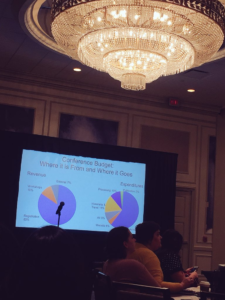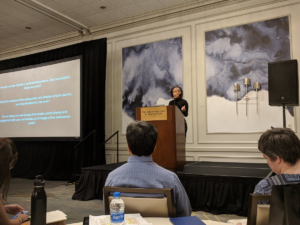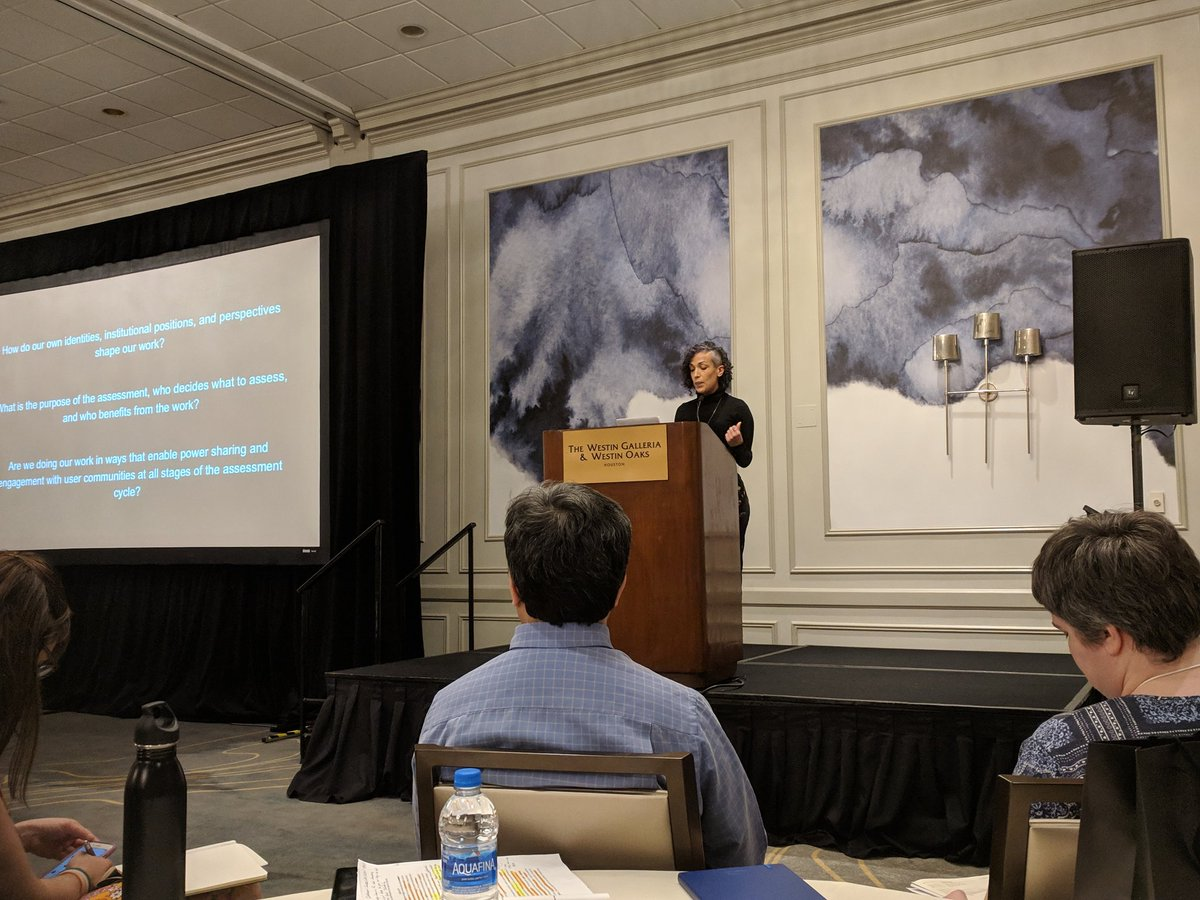by Kathleen “Kat” Kim Bell
The biennial Library Assessment Conference was held in Houston, Texas, from December 4th-7th, 2018. The conference, now in its second decade, broke away from some traditions that had developed from 2006-2016. This conference was the first to be held outside the Seattle, WA or Washington, D.C./Maryland/Virginia area, and was hosted jointly by the Association of Research Libraries, the University of Houston Libraries, and Texas A&M University Libraries. Traditionally, the conference has started on a Monday with Steve Hiller’s famous “Monday Morning Metrics,” which were changed to “Wednesday Morning Metrics” with the Wednesday-Friday schedule. Some interesting metrics of note: 87% of attendees were from academic libraries and 5% of attendees from community colleges gathered at an impromptu happy hour one evening. Steve also provided a nice breakdown of the budget and encouraged all of us to “eat and drink up” since our registration fees really supported the bulk of the budget.

My first highlight of the conference is Paul-Jervis Heath’s keynote speech, “Unlocking the Power of Design in the Library”. Heath shared stories of meeting users’ needs from his viewpoint as a designer, warning that if you want to understand what people need, the worst way to find this out is by asking them directly. He discussed high- versus low-intensity spaces in the library (committed productivity versus a more relaxed atmosphere), and revealed how prototyping the configuration of a study space led to discoveries of how potted plants (or “pot plants” as they call them in the United Kingdom) increase a sense of privacy when placed on a table. Heath provided three takeaways for the audience:
- Fall in love with your users. Get to know everything about them.
- It takes time. Move purposefully and make things better.
- Treat everything you design as a experiment. What will you learn? What can you improve on?
My favorite session from the conference was Ebony Magnus, Maggie Faber, and Jackie Belanger’s “A Consideration of Power Structures (and the Tension They Create) in Library Assessment Activities”. Ebony presented a well-paced, thoughtful and thought-provoking speech encouraging the audience to think about how we engage in reflective practice and how we are infusing our work with social justice values. Magnus’ three main questions can help practitioners take a step back from action and into the reflective process:
- How do our own identities, institutional positions, and perspectives shape our work?
- What is the purpose of the assessment, who decides what to assess, and who benefits from the work?
- Are we doing our work in ways that enable power sharing and engagement with user communities at all stages of the assessment cycle?
Magnus’s presentation reminded me that, as an assessment librarian, I should spend time reflecting on what I do to ensure that my community is uplifted by my work.

[spacer height=”20px”]
Editing assistance provided by Shanna Kim.

